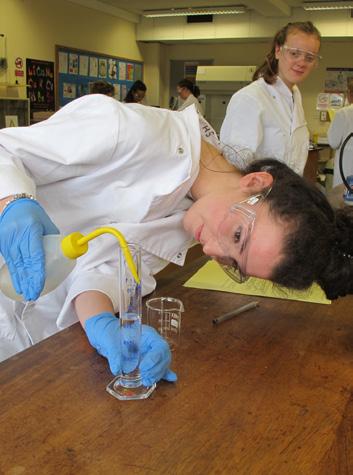
1 minute read
Useful Information
How and when do I decide which subjects to study?
It is wise for pupils to select subjects that they enjoy as they are more likely to want to give more time to these and, therefore, will probably be more successful in them. The move away from AS levels means that GCSE grades will become a key part of university applications. Achieving the best grade profile at the end of the Year 11 will therefore be very important. Pupils should also consider their strengths and weaknesses when making final choices. Studying 10 subjects to GCSE level can be challenging and playing to strengths will help to ensure success across subjects.
Advertisement
The deadline for subject choices is Friday 10th February
Are some subjects more valued than others?
All subjects are highly valued and a balanced profile which demonstrates creative, linguistic, scientific and mathematical skills will impress. It is unlikely that GCSE subject choices will preclude any pupil from any future courses, but advice should be sought from tutors, the Careers Advisor and teachers, if in doubt.

Do I have to do some subjects if I have a particular career in mind?
Through its core subjects, Tormead ensures that, to a certain extent, pupils keep their options open and do not make choices which preclude any pupil from further study in any specific areas. This said, if medicine is being considered, it is advisable to study all three sciences. Those wanting to study Languages at University, should opt for two. Again, advice should be sought if in doubt.
Should I study a humanity?
We do not insist that pupils study a humanity subject (history, geography, religious studies) as this allows very creative pupils who intend to follow careers in the creative arts to specialise early on. However, a humanities subject is among most pupils’ final choices, not only because the subjects themselves are popular, but also because of the skills they develop, which are favoured by universities and employers.



